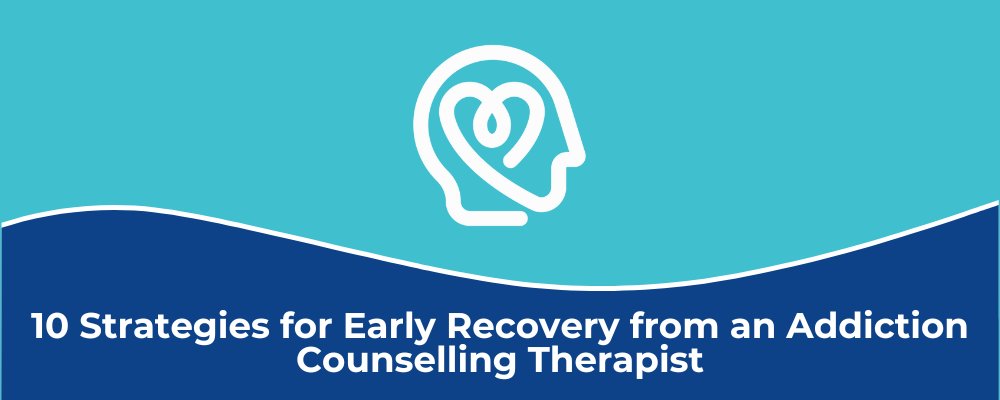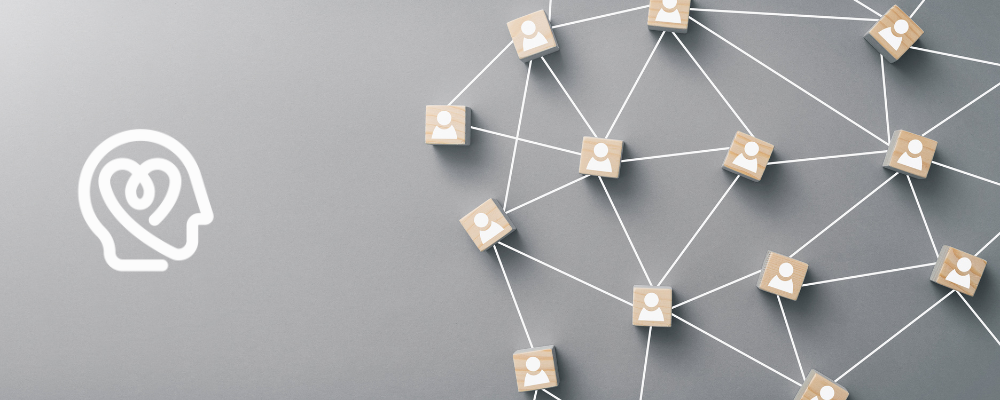
Changing your relationship with a problem substance or behaviour will be one of the most rewarding things you’ll ever do (I promise!); however, that does not mean that the process will always be easy. Based on our experiences providing addiction counselling Calgary, we have put together our top recommended strategies to help you in the early days of addiction recovery.
What Does Addiction Recovery Mean According to Addiction Counselling Calgary Therapists?
To be honest, addiction recovery means something different to everybody and there is no ‘one size fits all’ or ‘best’ definition. In Addiction Counselling Calgary, we prioritize what your goals are. For some, this is reducing the harm that is coming from certain substances and/or behaviours and we can explore tools and strategies to cut down exposure and use and improve quality of life. For others, the goal may be abstinence or sobriety from a substance(s) and/or behaviour(s). Once again, we can support you in obtaining and maintaining your goals. Most people exploring addiction counselling Calgary benefit from sessions that are regularly spaced over a longer period of time (6+ months) as this helps build consistency and momentum with recovery and healthy living. Our therapists recognize the importance of continuing care (meaning ongoing professional, peer, and personal support of wellness) and are here to walk along with you at each phase of the journey.
10 Strategies For Navigating Early Addiction Recovery from Addiction Counselling Calgary Therapists:
Here is our curated list of actions and recommendations to support you or your loved one in their addiction recovery journey. These are based on our years of addiction counselling Calgary experience as well as professional information and evidence of what tends to support people the best.
1) Detox safely. Alcohol is the only substance out there that detoxing from can be life-threatening. I found this an interesting fact when I first started as an addiction therapist and providing alcohol addiction counselling. Annie Grace talks about this and other facts about alcohol in her book and program ‘This Naked Mind.’ Because our bodies go into the opposite state that the drug induces in the quest for equilibrium during detox, this means that internal processes speed up and this can lead to seizure risk with alcohol, which is what leads to fatalities. Having support from a medical professional who can evaluate your level of risk during detoxification and provide appropriate recommendations and support is the best option.
Those who are detoxing from other substances may benefit from supportive medications to help minimize cravings and provide medical stabilization as their body undergoes great change in a short period of time. For those detoxing from problem behaviours, the physical symptoms associated with this are real and can include nausea, digestive issues, headache, irritability, fatigue, dizziness, shakiness, and more. While these symptoms are not life-threatening, they are uncomfortable and people benefit from having a plan for rest and recovery, much like if you were recovering from a physical illness.
2) Make plans. Your habitual addiction was always making plans, whether you were aware of them or not. For recovery, it is important that YOU now be the one making the plans. Be conscious and intentional about your activities, what you are consuming, who you are with, and how to navigate situations and times of day where you would normally use substances or act out with problem behaviour. Living and “hoping for the best” typically leads to greater challenges for people based on our experiences in addiction counselling Calgary. This is a time of transition and you need to make new habits through intentionality.
3) Remove and reduce triggers. Being honest with yourself about all of your known triggers is important in the early days of habit change because you can then alter your actions accordingly. Pay attention to the people, places, objects, times of day, times of week, events, situations, feelings, moods, and anything else that has been associated with using or acting out for you. For example, if you would normally drink alcohol while cooking, you will need to be mindful to ‘cook differently.’ Maybe this means cooking with someone rather than alone, asking for someone else to cook meals while your brain creates some new routines, and/or replacing your alcoholic beverage with something else enjoyable while you cook. Some triggers may be possible to completely reduce in your life (like not going to a bar or store), whereas others may need to be reduced but cannot be completely avoided (if you acted out with pornography in your bedroom you are unlikely to move or not ever spend time in your room, but you may rearrange things, change routines, and only go in for sleep). Being thoughtful about how you can healthily navigate triggers with empowerment and confidence is an important part of recovery based on our work with people when offering addiction counselling Calgary.

4) Access and build your support network. More frequent access to quality support people can be a make or break part of early recovery. Some people may not have quality supports and that is why groups like 12-Step Programs and SMART Recovery exist. Having a blend of people who share lived experience, professionals, and people who love and support you becomes the ideal trifecta of supportive relationships. To start with, you may only have one of these and that is totally fine; supportive relationships take time to build. These Addiction Counselling Calgary therapists want it to be on your mind as something to pay attention to and prioritize in your wellness journey.
5) Engage in self-care. This means valuing your mental, physical, and spiritual well-being through activities that can include exercise, art, meditation/relaxation, hobbies, social outings, reading, puzzles, time in nature, taking care of yourself, and taking time for yourself. Here is a starting list of 25 activities for adults to give you some ideas. In addiction counselling Calgary, these activities combined with professional support and peer support build the foundation for wellness or ‘recovery’ (whatever that means to you). The nice thing about these self-care activities is that they are personal and customized to your personality. A lot of people lose connection with themselves throughout active addiction and while early recovery may feel a bit robotic and disconnected; ultimately, engagement with different people and activities allows a safe place for people to reconnect with who they are and discover who that is today.
6) Engage in meaningful and productive activities. Often during active addiction, people lose focus of their life priorities. This can be everything from the big- job, relationship, family, education, financial security – to the everyday – chores, tasks, to-do projects to keep life running smooth. A lot of people in early recovery find benefit in keeping busy. Removing or reducing a problem substance or behaviour from your life frees up a surprising amount of time and energy so many people find it beneficial to feed this into tasks. Tackle that ongoing to-do list in your mind of things you want to do. The engagement with the task is a nice mindful way to engage our minds, it takes up time, plus the satisfaction of a project completed is good for our self-esteem and confidence. All of these are helpful for anyone, and especially for those exploring addiction counselling Calgary.
7) Remember your ‘why.’ Recovery is not easy (ask anyone). Because of this, when things get difficult, people have to dig down deep and remember why they’re putting themselves through the short-term discomfort and pain that they’re experiencing. For some, their ‘why’ is to improve health, for others it is for family, and for others it is because they are just ‘sick and tired of being sick and tired’ all the time and want a better quality of life. Whatever your why is, be clear on it, write it down, remind yourself of it often, and pull it out when times get tough. Recovery isn’t easy, but it is worth it. If you are seeing a therapist or engaging in addiction counselling Calgary, tell them your ‘why’ and this can be reflected to you when you are in times of challenge.
8) Invest in a treatment plan. Supportive relationships, peer support, professional support (from a physician, psychiatrist, therapist, and/or alternative health provider) and self-management tools (learning about addiction and recovery, journaling, meditation, self-care, etc.) are all part of a strong, multi-faceted treatment plan. Ideally, an addiction recovery plan is tailored to your unique personality and situation and makes sense given your circumstances. Addiction counselling Calgary can help you put together a plan that is robust and takes into consideration mental, physical, psychological, financial, cultural, and relational aspects of self. This is also something you can work with a close support or yourself to put together, though we recommend having a second set of eyes go through your plan as you never know what you may have missed or forgotten.
9) Take time to rest. In active addiction your body and mind have been put through so much that it is not unusual (nor is it a bad thing) to feel an energetic crash in the early days of recovery. Taking time to slow down, rest and sleep more, nurture your body with water and good nutrition and being gentle in your physical activity are among some of the best ways to begin your journey of recovery. This sets a good recuperative foundation and gives you the energy to start to build new habits and routines that will take care of you in the future. We hear it often in addiction counselling Calgary that rest feels needed but is often fought against. It’s okay, give yourself permission to rejuvenate. You deserve it.
10) Focus on what you’re gaining (not what you’re missing). FOMO vs. JOMO. Fear of missing out (what am I losing) vs. Joy of missing out (what am I gaining). Such a simple sounding perspective shift, but what a powerful one. When people are able to look at the gifts of recovery and sobriety, this can help you navigate the tougher moments and desire to go back to old patterns. Maybe you are already noticing some of them: You are sleeping better. You are feeling more clear-headed. You are feeling less guilt. Whatever the changes are that you are noticing, focus on them!
To help you along in your early recovery journey, we have a Free Resources page that our addiction counselling Calgary therapists have put together and regularly update. There are books, apps, and video resource suggestions on there in various areas of addiction recovery and mental health.
Sana Psychological is a private practice counselling agency located in Calgary, AB with another location in Airdrie, AB and can offer virtual services too. We support addiction recovery as well as all aspects of mental health.


